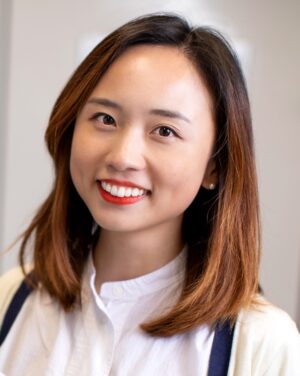H. Kay Chung, Ph.D.
Damon Runyon Cancer Research Fellow
NOMIS Center for Immunology and Microbial Pathogenesis
Salk Institute for Biological Studies, La Jolla, CA

H. Kay Chung, Ph.D.
“Designer immunity for cancer and beyond”
Abstract: My goal is to unleash the therapeutic potential of our own immune system via synthetic biology approach. Recently, we have witnessed remarkable progress in cancer treatment that employs adoptive cell transfer of tumor-specific “killer” T cells. However, tumors impede the infiltration, survival, and function of T cells, rendering the beneficial effects of this approach transient. To address this hurdle, I have been exploring T cell state programming. In the Susan Kaech laboratory at the Salk Institute, I have identified transcription factors that enhance the memory and tumor-killing ability of T cells in an unbiased manner. I will discuss my multiomics pipeline that predicts transcription factor activity as well as a multiplexed single-cell RNA sequencing approach that I have used for hit validation. I will also share how novel transcription factors, Zscan20, JDP2, and Nfil3, can be utilized for therapeutic purposes. In the second part of my talk, I will discuss clinically applicable synthetic biology tools that I have developed during my Ph.D. training at Stanford University. They enable drug, cell signal, and light-dependent control of any protein for cell-/virus-based therapies. Leveraging these tools, I will achieve an “ideal” T cell state. More specifically, I will combinatorially and context-dependently regulate master transcription factors so that they can toggle between T cell states best suited for fighting cancer cells at a given time in a given environment. My synthetic biology approaches not only enable effective T cell programming but also serve as a safety feature. In short, my designer cell state differentiation strategy allows us to fully capitalize on the therapeutic potential of our immune system for cancer and beyond.
Faculty Host: Sheila Stewart, Ph.D.